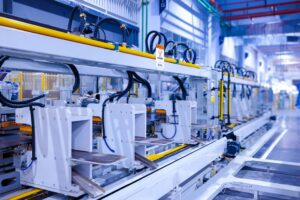The UK’s goal of reaching net-zero greenhouse gas emissions by 2050 is well-known, with efforts being ramped up to reach 95% clean power by 2030. Now, the energy sector is experiencing two major changes: a shift towards cleaner power, and increased use of smarter systems.
According to research from energy and sustainability consultancy TEAM Energy, digitisation and sustainability are merging, and are redefining how UK businesses manage their energy and reporting progress.
At the forefront of the change is the National Energy System Operator’s (NESO) Energy Sector Digitalisation Plan and the Department for Energy Security & Net Zero’s (DESNZ) report on data centre growth. NESO’s Digitalisation Plan outlines a strategy to modernise energy data and systems, while the DESNZ report underscores how national electricity demand is reshaped by digital services, and stresses the importance of clean, transparent energy.
TEAM Energy discovered that some digital tools, like automated reporting and IoT-powered monitoring, are being implemented by organisations to adapt to such changes. Data-driven pricing and demand-flexibility schemes are already saving money. For instance, Ofgem predicts that a half-hourly energy settlement by 2026 could potentially provide over £1.5 billion in benefits by 2045.
Challenges persist, however, with roughly 4% of commercial energy bills containing errors. With advanced digital systems, such inaccuracies should be reduced, creating traceable energy supplies and increasing trust among energy users.
“Digitalisation is the backbone of a smarter energy future,” said Graham Paul, TEAM Energy’s Service Delivery Director. “By harnessing real-time data and IoT, organisations can optimise their energy use and demonstrate genuine sustainability progress. This isn’t about compliance, but building trust and resilience in a rapidly changing energy landscape.”
Greater focus on sustainability, data validation, and carbon reporting are just some of the developments becoming more common in the energy sector. Digital platforms will continue to evolve in line with available technology, thereby letting organisations get improved bill and reporting accuracy. Ultimately, overall energy costs should reduce, plus boost trust in the data surrounding energy production and consumption.
(Image source: “Dynamo II” by -MRGT is licensed under CC BY-NC-SA 2.0.)

Want to learn more about IoT from industry leaders? Check out IoT Tech Expo taking place in Amsterdam, California, and London. The comprehensive event is part of TechEx and co-located with other leading technology events. Click here for more information.
IoT News is powered by TechForge Media. Explore other upcoming enterprise technology events and webinars here.


